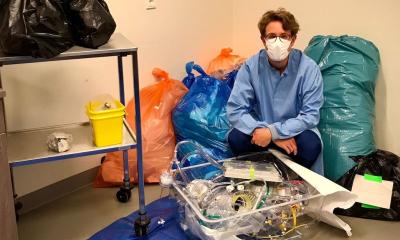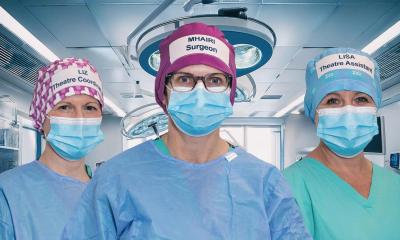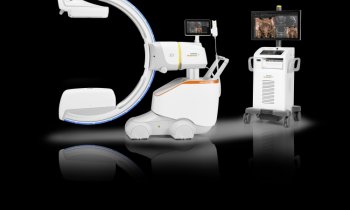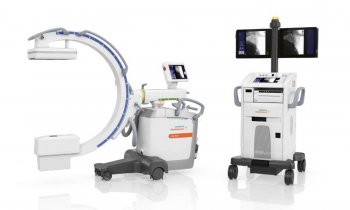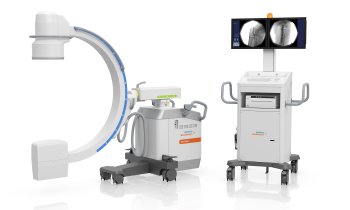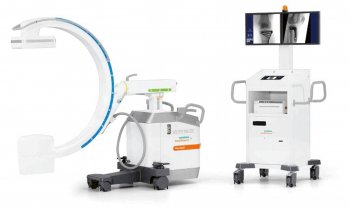
Image source: Adobe Stock/babsi_w
News • Surgery & medical economics
Carbon footprint of single-use surgical items in common operations
A new analysis of the carbon footprint of products used in the five most common surgical operations carried out in the National Health Service (NHS) in England shows that 68% of carbon contributions come from single-use items, such as single-use gowns, patient drapes and instrument table drapes.
Published by the Journal of the Royal Society of Medicine, the analysis highlights significant carbon contributors were the production of single use items and their waste disposal, together with processes for decontaminating reusable products.
Researchers from Brighton and Sussex Medical School and the University of Warwick carried out the study, which is the first to systematically evaluate the carbon footprint of products used in common operations. The analysis was based on direct observation of operating rooms across three sites of University Hospitals Sussex NHS Foundation Trust.
Applying the carbon dioxide equivalent (CO2e), the standard unit for measuring carbon footprints, to each of the operations, the researchers showed that the operation with the highest product carbon footprint was knee replacement (85.5kg CO2e). This was followed by gall bladder removal (20.3kg CO2e), carpal tunnel decompression surgery (12.0kg CO2e), hernia repair (11.7kg CO2e) and tonsillectomy (7.5kg CO2e).
Across the five operations, the researchers found that relatively few products (23%) were responsible for more than 80% of the product carbon footprint. This indicates that strategies for reducing greenhouse gas emissions associated with surgical operations should focus on the few products with highest emissions, typically large single-use (often plastic) items.
Lead researcher Dr. Chantelle Rizan, Clinical Lecturer in Sustainable Healthcare at Brighton and Sussex Medical School, said, "Mitigating the carbon footprint of products used in resource-intensive areas such as surgical operating rooms will be important in achieving net zero carbon healthcare. Strategies should include eliminating or finding low carbon alternatives for products with the biggest contribution."
Eliminating single-use items or switching to reusables where feasible, alongside optimizing associated decontamination processes and waste segregation and recycling, could reduce product carbon footprint by one third.
Dr. Chantelle Rizan
Strategies to eliminate products, write the researchers, include avoiding non-sterile gloves, where they could be replaced with hand-washing, not opening gauze swab packs unless required and asking suppliers to remove rarely used items from single-use pre-prepared packs.
The researchers also suggest that a number of single-use high carbon products have reusable alternatives. For example, single-use gowns, patient drapes and instrument table drapes were high carbon contributors in the study, yet the researchers note there is no evidence that reusable surgical textiles, which hold significant reductions in carbon footprint, are clinically inferior.
Dr. Rizan concludes, "Eliminating single-use items or switching to reusables where feasible, alongside optimizing associated decontamination processes and waste segregation and recycling, could reduce product carbon footprint by one third. This model was based on reusable alternatives already on the market, and this figure may be surpassed where industry rises to the challenge of sustainable surgical product innovation."
Source: SAGE Publications
18.04.2023



